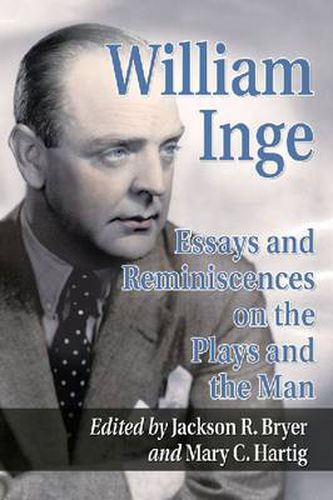Readings Newsletter
Become a Readings Member to make your shopping experience even easier.
Sign in or sign up for free!
You’re not far away from qualifying for FREE standard shipping within Australia
You’ve qualified for FREE standard shipping within Australia
The cart is loading…






William Inge’s popular plays of the 1950s received Tony nominations (Bus Stop, 1956, and Dark at the Top of the Stairs, 1958) and won a Pulitzer Prize (Picnic, 1953). As a screenwriter, he won an Academy Award (Splendor in the Grass, 1961). Yet Inge’s career ended in perceived failure, depression and finally suicide. These previously unpublished essays take a fresh look at some of his most popular work, as well as his less well-known later plays. Inge’s work was often ahead of its time, and foreshadowed the influence of popular media and advertising, the sexual revolution and the women’s movement. The essays give context for Inge’s work within 20th-century American drama, and attest to his exceptional talent. Included are reminiscences which reveal the playwright’s charm and generosity, and shed light on how a brilliant, troubled man eventually took his own life.
$9.00 standard shipping within Australia
FREE standard shipping within Australia for orders over $100.00
Express & International shipping calculated at checkout
William Inge’s popular plays of the 1950s received Tony nominations (Bus Stop, 1956, and Dark at the Top of the Stairs, 1958) and won a Pulitzer Prize (Picnic, 1953). As a screenwriter, he won an Academy Award (Splendor in the Grass, 1961). Yet Inge’s career ended in perceived failure, depression and finally suicide. These previously unpublished essays take a fresh look at some of his most popular work, as well as his less well-known later plays. Inge’s work was often ahead of its time, and foreshadowed the influence of popular media and advertising, the sexual revolution and the women’s movement. The essays give context for Inge’s work within 20th-century American drama, and attest to his exceptional talent. Included are reminiscences which reveal the playwright’s charm and generosity, and shed light on how a brilliant, troubled man eventually took his own life.